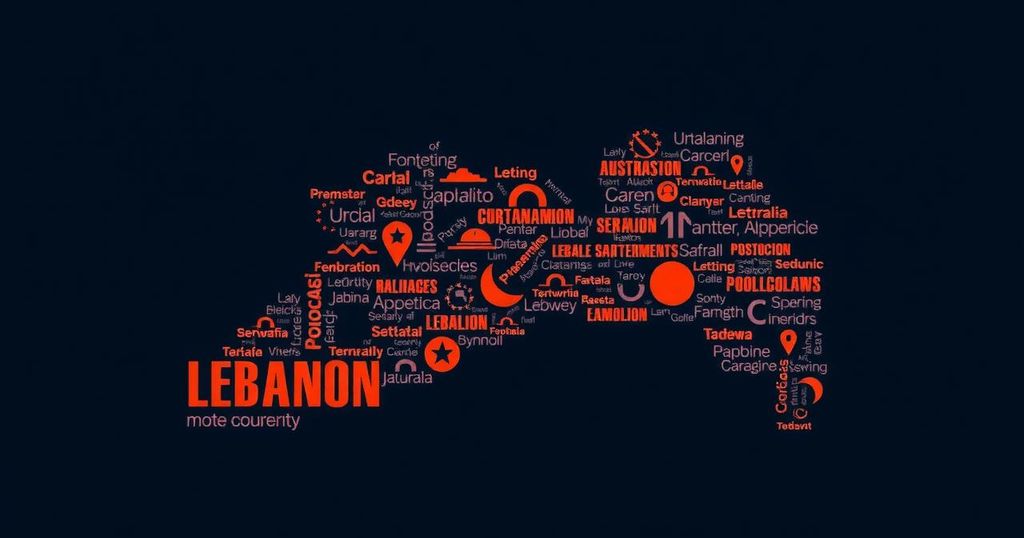Lebanese Australians Face Emotional Aftermath of Israeli Attacks on Lebanon

The recent bombing of Lebanon by Israel has triggered traumatic memories for Lebanese Australians, particularly in Sydney and Melbourne. Many in the community maintain close ties with family members in Lebanon, leading to heightened emotional distress amid rising Islamophobia in Australia. Community unity is emphasized as leaders call for humanitarian support and peace efforts to protect civilians amidst escalating violence.
In response to the recent Israeli military actions in Lebanon, Lebanese Australians are grappling with painful memories from the Lebanese Civil War. Communities in Sydney and Melbourne are particularly affected, where many individuals maintain close ties to family members still residing in Lebanon. Michael Kheirallah, leader of the Victorian Lebanese Community Council, noted that the current violence has led many community members to struggle with sleeplessness and persistent anxiety as they witness the harrowing images from their homeland via news and social media. The influx of Lebanese immigrants to Australia, particularly during and after the civil war from 1975 to 1990, has created a strong community rooted deeply in Australian society. While they contribute significantly to the social fabric through cultural and culinary contributions, they also bear the weight of repeated violence faced by their homeland. The memory of previous Israeli invasions and the aftermath of the 2006 conflict continues to haunt many, evoking deep emotional responses amid the escalating violence. Recent developments have also seen significant evacuation efforts for Australians in Lebanon and humanitarian assistance being pledged by the Australian government. Notably, reports indicate increased Islamophobia in Australia, particularly following events surrounding the Israel-Hamas conflict, adding further complexity to the Lebanese Australian experience. Despite this rise in anti-Muslim sentiment, leaders within the community emphasize the unity and resilience of Lebanese Australians as they advocate for their homeland. Lastly, amidst calls for peace, many in the Lebanese Australian community are hopeful for a resolution to the conflict, aware of the precarious situation in Lebanon that could mirrors the struggles faced by Gaza. The situation underscores the need for immediate peace efforts and support for civilians on the ground who are often the victims of geopolitical tensions.
The renewed military conflict involving Israel and Lebanon has had profound social implications for Lebanese Australians, particularly reflecting on the anguish of historical wars such as the Lebanese Civil War. This recent escalation resonates deeply with the Lebanese diaspora in Australia, many of whom have enduring familial connections to Lebanon. Australia’s Lebanese community, which includes Muslims and Christians, has long played a vital role in enriching Australian culture; however, they now find themselves uniquely affected by conflict and rising Islamophobia amid recent global events. As attacks intensify, humanitarian concerns grow for those displaced within Lebanon and the emotional toll on those with family ties abroad.
In conclusion, the recent Israeli offensive against Lebanon has stirred traumatic recollections for Lebanese Australians, who are witnessing the resurgence of violence reminiscent of past conflicts. The community’s deep ties to Lebanon not only evoke personal stress but also amplify concerns over rising Islamophobia and political activism in Australia. As humanitarian crises unfold, leaders advocate for unity and immediate calls for a ceasefire, hoping to halt further suffering and promote peace for their homeland. The situation demands significant attention and support for both Lebanese and broader Australian communities, highlighting the need for compassionate engagement with ongoing geopolitical struggles.
Original Source: www.aljazeera.com








